第80章
"My Polish subjects are the minimum portion, and are about in proportion to the German population as in imperial Austria the German is to the foreign. But enough of this; if I do not recognize this as a civil war, it is indeed a great misfortune. I would do every thing to avoid it--every thing compatible with the honor and glory of my house, as well as that of Germany in general. Therefore let us know the Views of the empress-queen!""Sire," answered Von Thugut, as he slowly untied and unfolded the documents, "I beg permission to read aloud to your majesty the acts relative to these points.""No, baron," answered the king quickly, "the more minute details give to my minister; I wish only the contents in brief.""At your majesty's command. The empress-queen declares herself ready to renounce the concluded treaty of inheritance to the succession of Bavaria at the death of Elector Charles Theodore; also to give up the district seized, if Prussia will promise to resign the succession of the Margraves of Anspach and Baireuth, and let them remain independent principalities, governed by self-dependent sovereigns.""That means, that Austria, who will unjustly aggrandize herself by Bavaria, will deprive Prussia of a lawful inheritance!" cried the king, his eyes flashing anger. "I will not heed the after-cause, but I wish to satisfactorily understand the first part of the proposition, that Austria will cede her pretensions to Bavaria.""Sire, upon conditions only which are sufficient for the honor, the wishes, and necessities of my lofty mistress.""You hear, my dear Herzberg," said the king, smiling, and turning to his minister, "c'est tout comme chez nous. It will now be your task to find out these conditions, which too closely affect the honor of one or the other. For this purpose you will find the adjacent Cloister Braunau more convenient than my poor cabin. At the conferences of diplomats much time is consumed, while we military people have little time to spare. I shall move on with my army.""How, then! will your majesty break up here?" cried Thugut, with evident surprise.
The king smiled. "Yes, I shall advance, as my remaining might be construed equal to a retreat. The arts of diplomacy may drag on until the imperialists have assembled all their foreign subjects to the so-called civil war. Then hasten the negotiations, Baron yon Thugut, for every day of diplomatic peace is one day more of foraging war, and I know not that you count the Bohemians in the German brotherhood, to whom the calamity of war is ruinous. You have now to deal with the Baron yon Thugut, my dear Herzberg, and I hope the baron will accept some diplomatic campaigns with you in Cloister Braunau.""Sire, I accept, and if your majesty will dismiss me, I will go at once to the cloister," answered Baron yon Thugut, whose manner had become graver and more serious since the king's announcement of the intended advance.
"You are at liberty to withdraw. The good and hospitable monks have already been apprised of your arrival by an express courier, and have doubtless a good supper and a soft bed awaiting you.""Had your majesty the grace to be convinced of my return?" asked Thugut.
"I was convinced of the tender heart of the empress-queen, and that she would graciously try once more, in her Christian mercy, to convert such an old barbarian and heretic as I am. Go now to the cloister, and when I pass by in the morning, with my army, I will not fail to have them play a pious air for the edification of the diplomats--such as, 'My soul, like the young deer, cries unto Thee,'
or, 'Oh, master, I am thy old dog,' or some such heavenly song to excite the diplomats to pious thoughts, and therewith I commend you to God's care, Baron yon Thugut."The king charged Herr yon Herzberg to play the role of grand-chamberlain, and accompany the ambassador to his carriage, smiling, and slightly nodding a farewell.
The baron was on the point of leaving, when the king called to him.
"Had your majesty the grace to call me?" asked Thugut, hastily turning.
"Yes!" answered Frederick, smiling, and pointing to the string which had served to bind the baron's papers. "You have forgotten something, my lord, and I do not like to enrich myself with others'
property." [Footnote: Historical. The king's words.--See Hormayr.]
Baron von Thugut took this last well-aimed stab of his royal opponent somewhat embarrassed, and hastened to pick up the string, and withdraw.